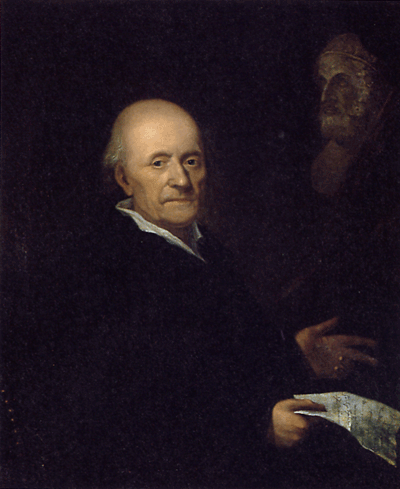Fredrich Gottlieb Klopstock was a German epic poet. He was born July 2nd 1724 in Quedlinburg, Saxony. He attended Schulpforta, a prestigious Protestant boarding school. While at school he read Paradise Lost by John Milton, which influenced him to write a great religious epic poem. This poem was titled Der Messias and became his most famous work. It contained 20 cantos, the first three of which were published in 1748. The first five cantos were added together and created the first volume in 1751. The second volume contained 6-10 and was released in 1755. The third volume contained 11-15 and was released in 1768. The poem was not finished until the fourth volume was released in 1773. The first half of the poem led up to the death of Jesus Christ, and the second half told about his redemption and resurrection. The poem was translated in to 17 languages and is still read during religious practices. After school he became a tutor for a close relative. He ended up falling in love with his cousin, and had to move away. Klopstock got married to Margareta Moller in 1754. She died four years later. To get over his heartbreak, he married his late wife's niece (lol). His later writings became vague and did not find the same success he had with Der Messias. He moved to Hamburg and died in 1803.
http://www.britannica.com/EBchecked/topic/320137/Friedrich-Gottlieb-Klopstock
http://www.answers.com/topic/der-messias


